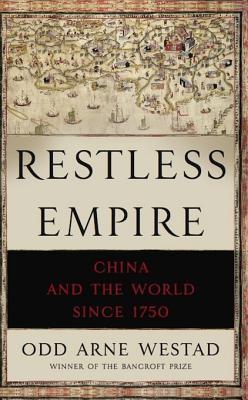
Restless Empire
China and the World Since 1750
کتاب های مرتبط
- اطلاعات
- نقد و بررسی
- دیدگاه کاربران
نقد و بررسی

June 4, 2012
Trauma, antagonism, and stimulating development are the fruit of China’s deeply formative engagement with the world, according to this savvy history. Bancroft Prize–winning historian Westad (The Global Cold War), of the London School of Economics, surveys China’s foreign relations from the 18th-century Qing dynasty’s war in Burma to present-day wrangles over U.S. spy planes, mineral rights in the South China Sea, and the latter-day economic boom that has made nominally Communist China the “champion of free market capitalism.” Much of this period is one of military subjection to rapacious foreign powers, but Westad emphasizes the importance of those experiences in making China modern: Western imperialism, he argues, brought economic development and new ideas about democracy and nationalism; Communist China’s emulation of the Soviet Union boosted the power and activism of the state; China’s post–cold war economic boom is predicated on international trade and investment, and business practices imported from abroad. Against the conventional image of an arrogantly aloof and immovable civilization, the author tells a story—apart from the disastrous xenophobic detour of Maoism—of China’s progressive attunement and adaptation to foreign influences. Westad manages to compress a vast and complex history into a well-paced narrative that helps readers understand China’s growing centrality in international affairs. 6 maps. Agent: Peter Robinson, Robinson Literary Agency.

























دیدگاه کاربران